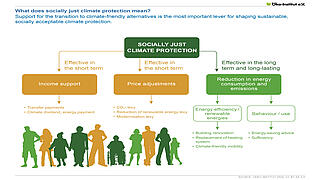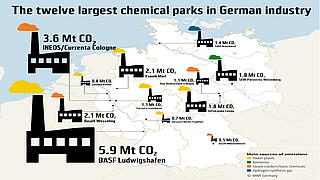Energy-efficient upgrading, a switch to renewable heating solutions and changes in consumer behaviour must be rapidly accelerated in order to close the emissions gap in the building sector. However, climate change mitigation measures in residential properties affect tenants, landlords and owners in different ways. Tenants, for example, have far less scope to be involved in refurbishments or the conversion of heating systems to renewables, while landlords often lack any incentive to undertake ambitious energy upgrading as they do not benefit from the resulting savings on energy costs. And many homeowners on low incomes cannot afford to carry out upgrading at all.
What can be done to ensure an equitable heat transition? This is one of the Oeko-Institut’s areas of research. The experts assess various entry points for the heat transition in terms of their social impacts, using a range of variables, such as disposable income, household composition and socioeconomic status. They analyse policy measures in the building sector and recommend fair and targeted action to support and ease the burden on households. They also develop appropriate instruments for all target groups and suggest changes to the legal framework.













